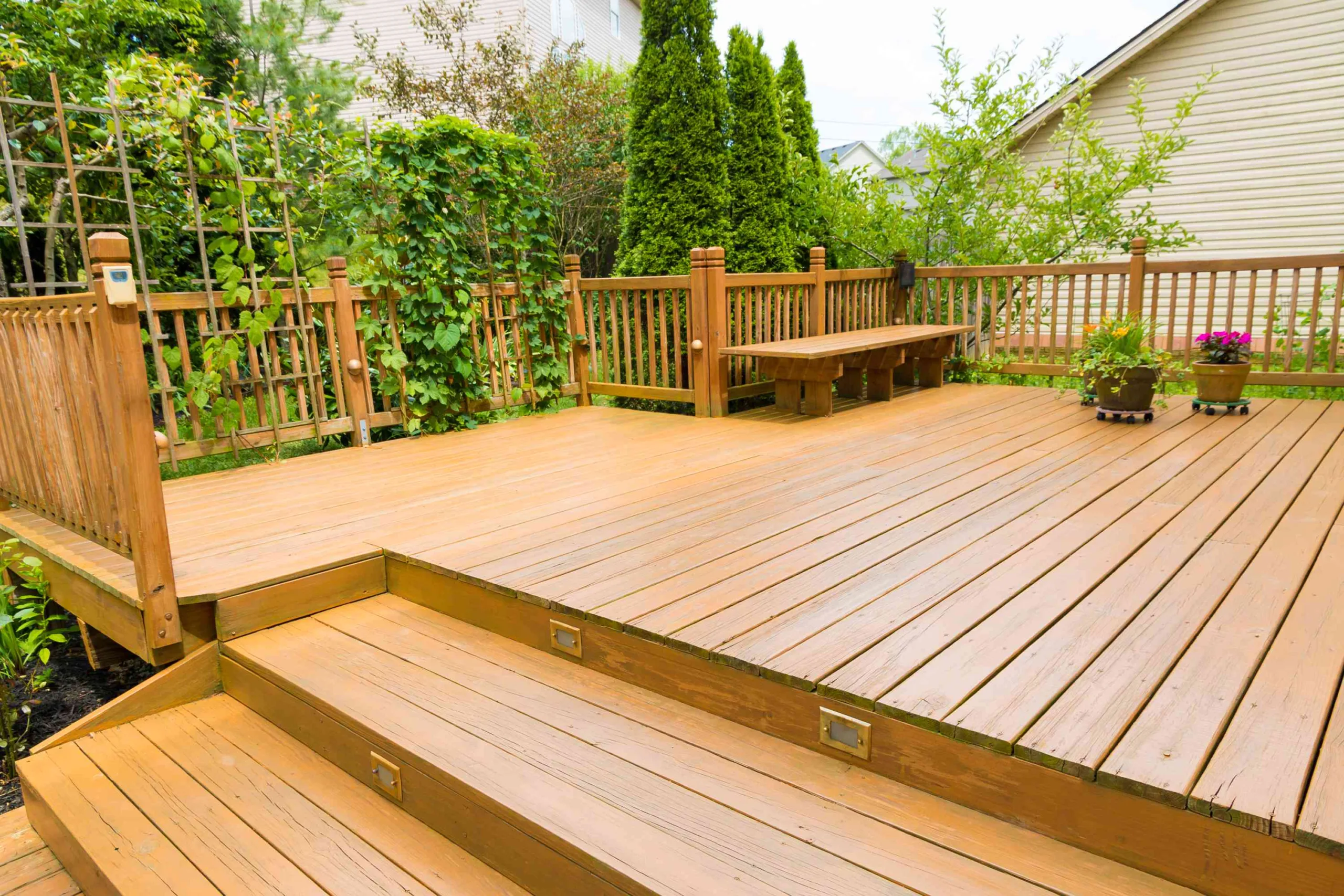Deck additions have always been a popular home improvement, but they are becoming increasingly sought-after as homeowners realize the serious benefits they offer. These projects can extend your living space, boost your property’s curb appeal, and increase your home’s market value. However, like any major undertaking, they have their advantages and disadvantages. This blog will delve into the pros and cons of adding a deck, giving you the information you need to make the best decision for your home.
The Pros
Providing Additional Living Space
Typically, the biggest advantage of a deck is the instant expansion of your usable living area. It essentially creates an extra room that merges the indoors with the outdoors, ideal for everything from quiet morning coffees to lively evening get-togethers. A deck is an easy way to increase your home’s footprint with minimal work.
Boosting Your Home’s Appeal (and Price)
If you put your house on the market, a deck can be a serious draw. A sturdy, well-designed deck can significantly elevate the visual appeal of your outdoor space. It can become a natural focal point, adding architectural interest and enhancing the overall look of your home’s exterior. Buyers also often value the extra outdoor living space, making your property more attractive and potentially increasing its market value.
Improving Your Mental and Physical Health
More than just a space for spending time with friends and family, a deck offers a dedicated area to get out into nature. Having a deck has been proven to increase how much homeowners go outdoors, which is fantastic for your health. Spending time on your deck can lower stress levels, improve your mood, and even encourage gentle physical activity, contributing to your overall mental and physical well-being.
The Cons
Requires a Major Financial Commitment
Deck additions involve a large financial investment. The final cost fluctuates significantly based on the deck’s size, the materials you choose, and whether you decide to tackle the project yourself or hire professional deck builders. While DIYs save on labor costs, they require a considerable amount of time and skills that may be better left to a professional. If you opt for DIY, you’ll also need to factor in expenses like hiring waste removal services to handle construction debris and the price of renting equipment.
Prone to Attracting Pests
Decks are susceptible to attracting unwanted pests, such as rodents seeking shelter underneath who cause structural damage and spread diseases. Termites and carpenter ants are drawn to wood and eat away at your home, and mosquitoes can breed in standing water that accumulates in gaps or under the deck. Hiring an exterminator for these infestations can be expensive, and ignoring them can lead to costly repairs and a less comfortable and healthy home for you and your family. Regular deck maintenance is crucial to minimize risk.
Reduces Your Yard Space
Constructing a deck will inevitably decrease the amount of lawn or garden areas in your yard. It’s important to balance your desire for outdoor living space with your need for open green space. Careful planning of the deck’s size and placement can help preserve space and help the deck blend with the landscaping, but they could still occupy too much room for smaller yards.
Conclusion
Weigh these pros and cons against your individual needs, budget, and lifestyle. While the benefits of expanded living space and enhanced outdoor activity are significant, the costs and maintenance requirements can be considerable. Get quotes from multiple contractors, research material options, and honestly assess your situation before making a final decision.

